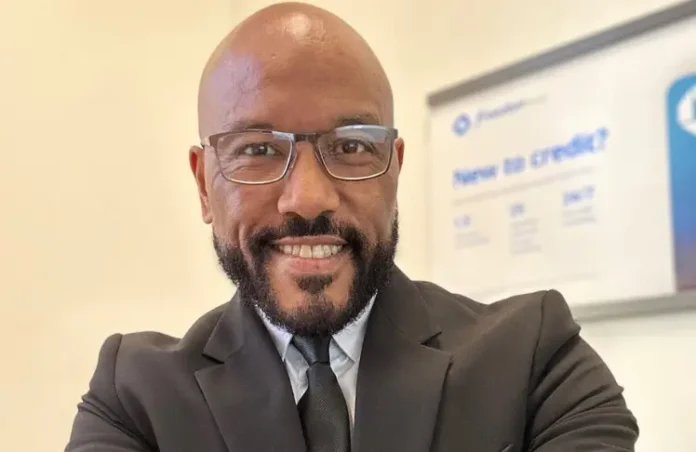Finances FYI Presented by JPMorgan Chase
By Aaron Allen, The Portland Medium
Opening a bank account is a fundamental step in managing finances, offering a range of services from depositing checks to facilitating transfers. Banks provide a seamless, secure way to handle money, but the landscape of banking has evolved significantly over the years, leading to questions about the relevance of traditional banking tools like checks in the digital era.
Paul Butler, a Community Manager with Chase, sheds light on this evolution.
“The term ‘checking account’ has been in use for years, primarily for writing checks. Nowadays, the distinction between a ‘checking’ and a ‘savings’ account is more about terminology. The use of checks? Most people have moved beyond them,” say Butler.
The process of opening a bank account, whether online or in person, requires preparation and understanding of the necessary information and documentation. “When opening a checking account, whether it’s online or in a branch, you’ll either fill out a form or answer questions. Essential identification documents are a must for this process,” Butler adds.
Personal Checking Accounts: A Closer Look
Opening a personal checking account involves several key steps and documents:
• Identification: Valid identification is crucial, and it doesn’t necessitate U.S. citizenship. Acceptable forms of ID include a government-issued photo ID (like a driver’s license), a passport with a birth certificate for minors, or a Social Security card or ITIN. Some banks are flexible and may accept other forms of ID, such as a consular identification card.
• Proof of Address: Banks require a document, such as a utility bill or rental agreement, showing the customer’s name and current address to ensure proper identification and fraud prevention.
• Initial Deposit: The process often requires an initial deposit, which varies by institution but typically includes cash, a check, or a transfer.
Butler emphasizes the benefits of having a checking account, particularly focusing on safety and security.
“A checking account offers more than just a means for transactions; it’s about convenience, service, and security. Unlike keeping money under your mattress, a bank offers insured security. In case of theft or loss at home, your money is uninsured and irrevocably gone, but in a bank, it’s protected,” he explains.
However, Butler also stresses the role of the consumer in ensuring account safety.
“While banks do their utmost to secure your accounts, as a consumer, there’s a responsibility to vet the businesses you interact with. Banks typically cover losses from fraud, but consumer vigilance is key,” he advises.
Business Banking: A Different Terrain
Opening a business account is a distinct process with its own set of requirements. “Just like with personal accounts, identification is necessary. But for business accounts, you need to provide proof of your business’s legal status and operation, especially if incorporated,” Butler points out.
Essential documents for opening a business account include:
• Business Structure Documentation: This includes articles of incorporation for corporations or LLCs, outlining the company’s name, purpose, and administration.
• Ownership Agreement: Detailing the rights and responsibilities of each business owner.
• Legal Name Certificate: A document certifying the legal name of the business.
• Business License: Necessary for legal operation in many industries.
• Personal Identification: Similar requirements as personal accounts for the business owner.
• Employer Identification Number (EIN): Issued by the IRS for tax purposes.
• Initial Deposit: As with personal accounts, an opening deposit is usually required.
“When dealing with business accounts, the nuances differ. For example, in Washington State, you must provide documentation like letters of incorporation and a business license. The process ensures that your business is legally recognized and eligible for an account,” Butler elaborates.
Key Questions for Account Opening
Before approaching a bank, it’s crucial to prepare questions to identify the most suitable account for your needs. Butler suggests inquiring about monthly maintenance fees, service charges like ATM or overdraft fees, the process for international fund access, and any promotional offers.
“Understanding these aspects upfront avoids surprises and ensures you choose an account that aligns with your financial habits and needs,” advises Butler.
For business accounts, understanding transaction limits and available banking services, including loans and credit lines, is vital.
“Business owners should be aware of the transaction limits and associated fees to avoid additional charges. Knowing what your bank offers can significantly impact your business’s financial management,” Butler adds.
The Role of Financial Advisers in Long-Term Savings
For those looking to save long-term, whether for retirement or a significant purchase like a house, banks offer the expertise of financial advisors.
“Choosing the right financial advisor is about building a relationship where you can openly discuss your financial goals and concerns. Keep in mind, advisors might work on a commission basis or charge transaction fees,” Butler notes. “It’s about finding someone who aligns with your financial objectives and whom you can trust.”
Butler also highlights the importance of balancing digital and physical banking services.
“While online and app-based banking bring convenience, having access to a physical branch can be crucial for discussing more complex personal or business financing needs. The ability to have face-to-face conversations with financial experts cannot be underestimated,” he states.
Digital Banking: The New Frontier
The banking sector is increasingly embracing digital technologies, offering customers the convenience of managing their finances from anywhere. However, this digital shift also brings new responsibilities and considerations for bank customers.
“With digital banking, it’s easier than ever to track spending, make payments, and manage accounts. Yet, it’s crucial for customers to stay informed about the security features of their online banking platform and to use strong, unique passwords for their accounts,” Butler advises. He also emphasizes the importance of being aware of potential cyber threats and how the bank’s fraud protection measures can help safeguard accounts.
The Future of Banking: Trends to Watch
As the banking industry continues to evolve, Butler points out several trends that customers should be aware of:
• AI and Machine Learning: Banks are increasingly using AI to provide personalized banking advice and improve fraud detection.
• Blockchain Technology: This technology is gaining traction for its potential to increase the security and efficiency of transactions.
• Sustainable Banking: More banks are offering products and services that support environmentally friendly practices and sustainable development goals.
Butler concludes our conversation by emphasizing the importance of staying informed and making educated decisions about banking.
“Whether you’re opening a personal or business account, the key is to be well-prepared and to choose a banking partner that aligns with your financial needs and goals,” says Butler. “Always remember, your bank is more than just a place to store money; it’s a resource for financial growth and security.”
As banking continues to evolve with the times, it’s essential for consumers to stay abreast of these changes. From understanding the requirements of opening different types of accounts to leveraging the advice of financial advisors and staying informed about emerging banking technologies, an informed approach to banking can lead to more secure, efficient, and fruitful management of personal and business finances.
Finances FYI is presented by JPMorgan Chase. JPMorgan Chase is making a $30 billion commitment over the next five years to address some of the largest drivers of the racial wealth divide.























